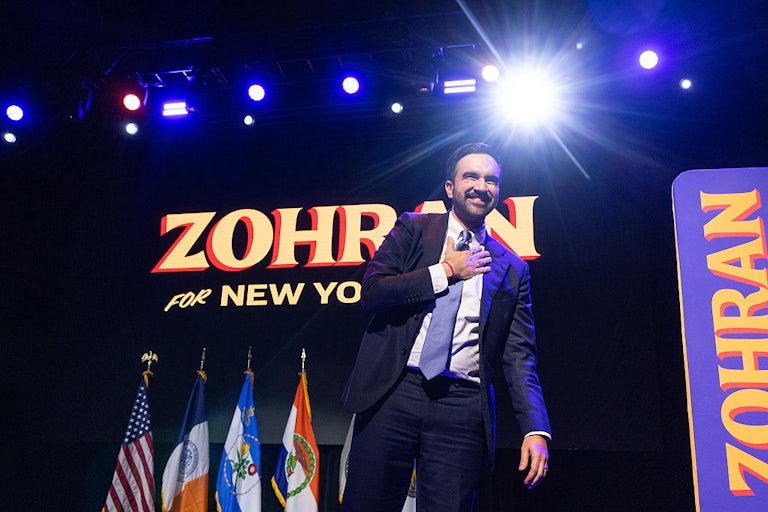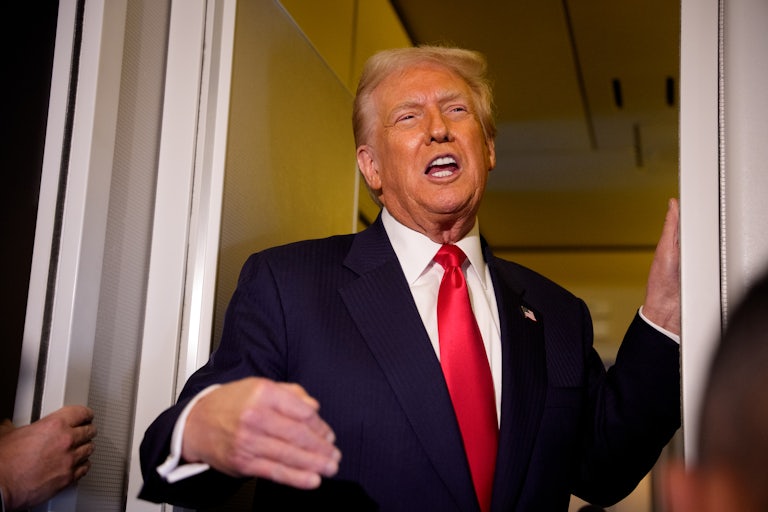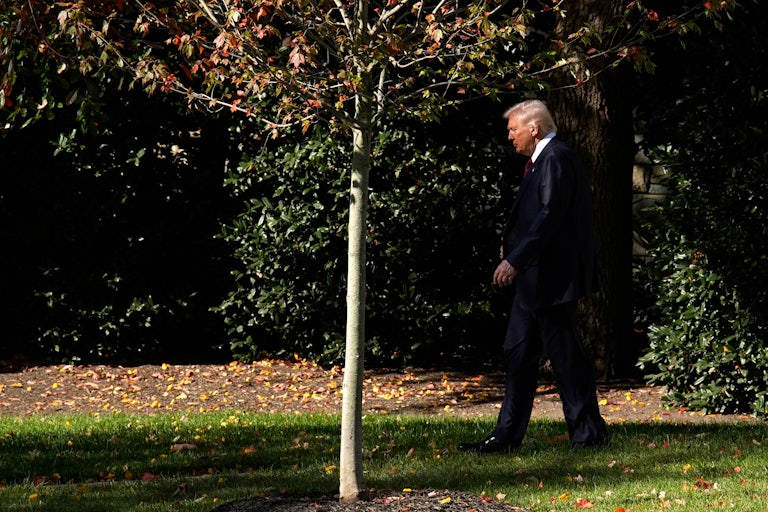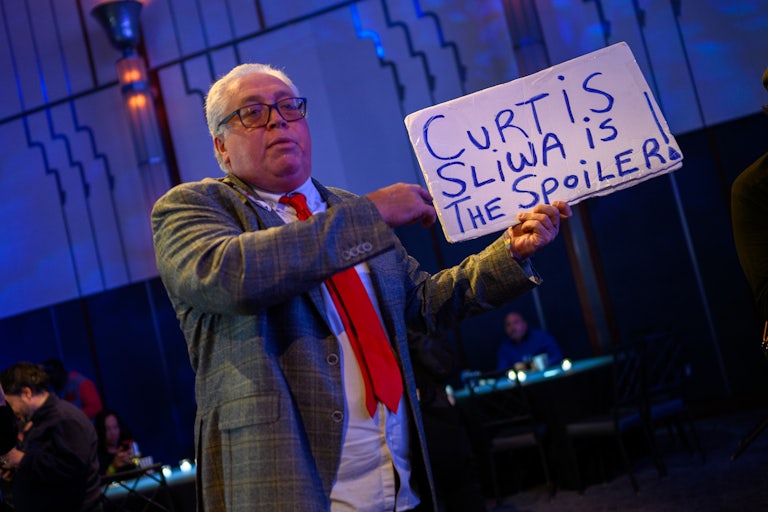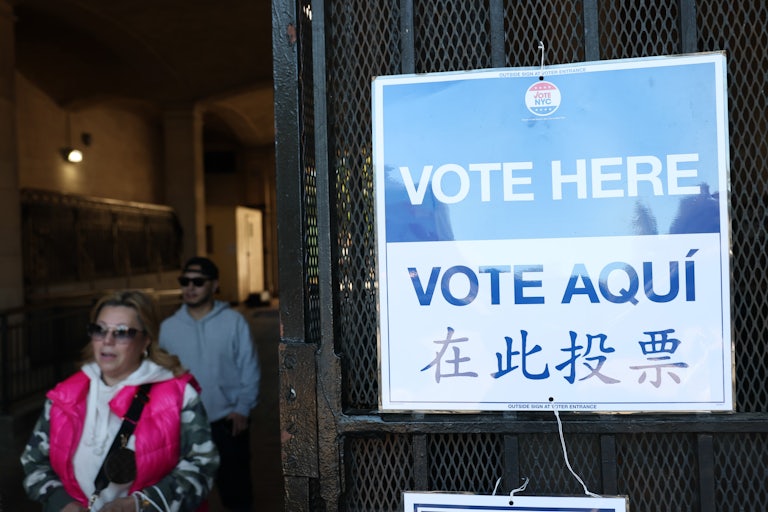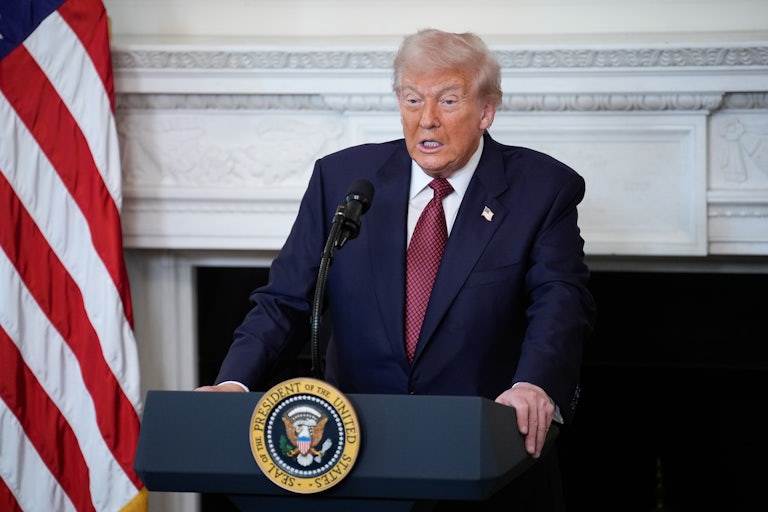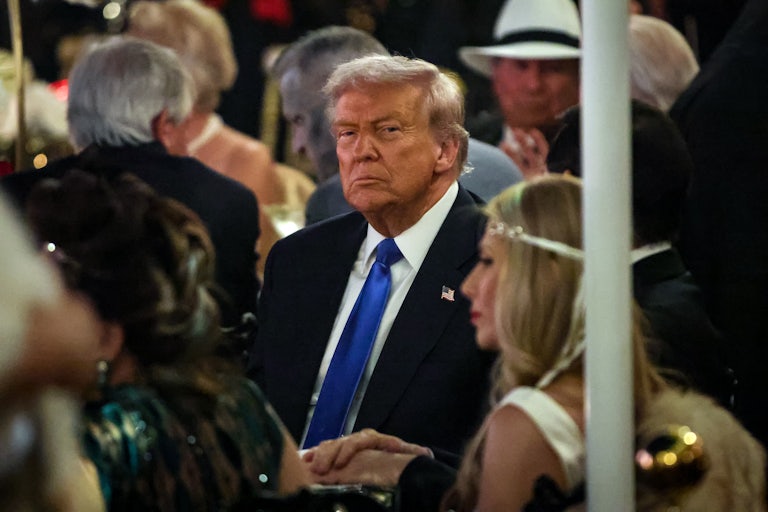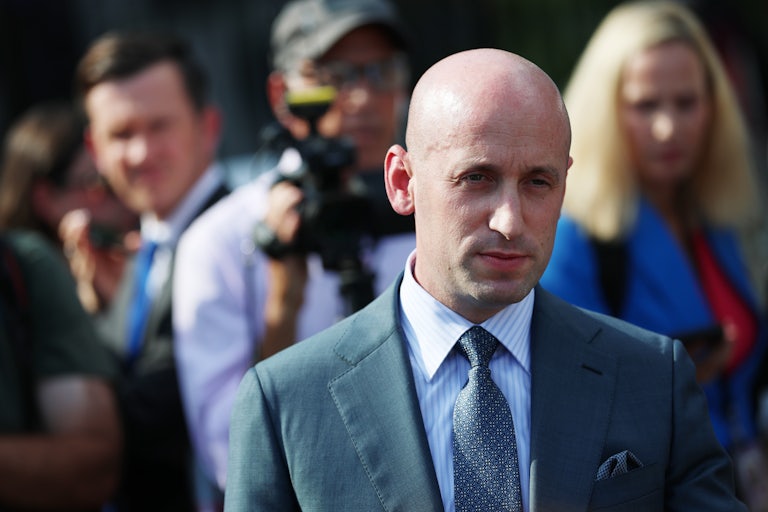Trump’s Tariff Supreme Court Case Is Already Going Off the Rails
Even the conservative justices sounded highly skeptical of the Justice Department’s arguments.
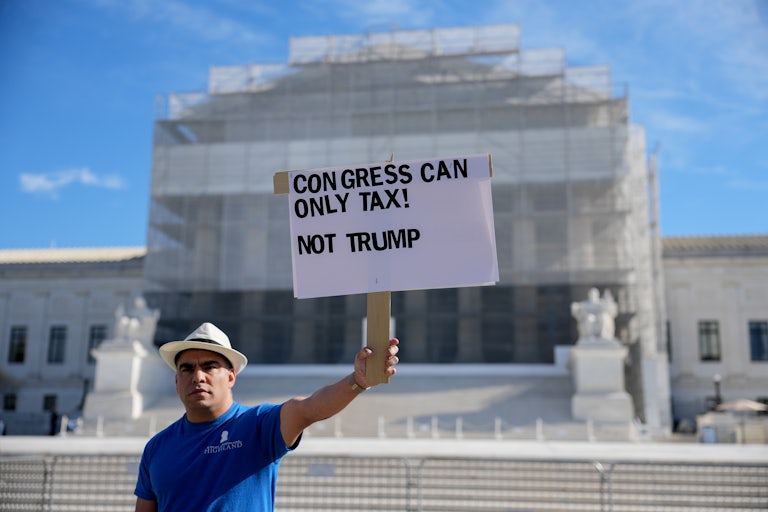
Donald Trump’s sweeping global tariffs were met with overwhelming skepticism from the Supreme Court Wednesday, as conservative justices joined their liberal colleagues in expressing serious concerns over the legality of the president’s actions.
Chief Justice John Roberts and Justices Amy Coney Barrett and Neil Gorsuch appeared entirely unconvinced by the government’s defense of Trump’s tariffs while sharply questioning U.S. Solicitor General John D. Sauer, the president’s former personal lawyer.
Barrett asked Sauer how Trump could possibly impose tariffs under the International Emergency Economic Powers Act, or IEEPA, which allows the president to regulate commerce in case of a national emergency but doesn’t actually include the word “tariff.”
Barrett, whom Trump nominated to the high court, also pressed Sauer for a single other example of Congress conferring its tariff authority to the president—but the government’s lawyer couldn’t summon an actual response.
Gorsuch asserted that Congress would never wrest its tariff power back from the executive, suggesting that the Trump administration’s interpretation of the IEEPA was “a one-way ratchet towards the gradual accretion of power to the executive branch.” He also pressed Sauer on what constituted an emergency under the IEEPA, and even got the president’s lawyer to agree that climate change would be a suitable excuse for invoking the rule.
Roberts took a turn grilling Sauer too, implying that Trump’s tariffs had overstepped Congress’s authority because the “vehicle is imposition of taxes on Americans, and that has always been the core power of Congress.”
“So, to have the president’s foreign affairs power trump that basic power for Congress, seems to me to kind of at least neutralize between the two powers, the executive power and the legislative power,” Roberts continued.
One expert noted to CNN that Sauer repeatedly used the word “tariff” as a verb, in order to avoid using the word “tax.”
Roberts also noted that IEEPA had never been used to impose tariffs. “It does seem like that’s major authority and the basis for the claim, seems to be a misfit,” he said.
